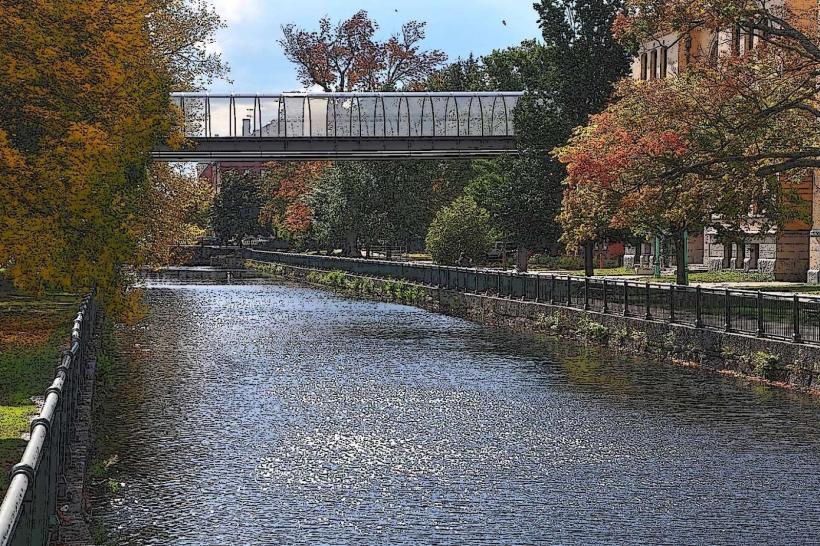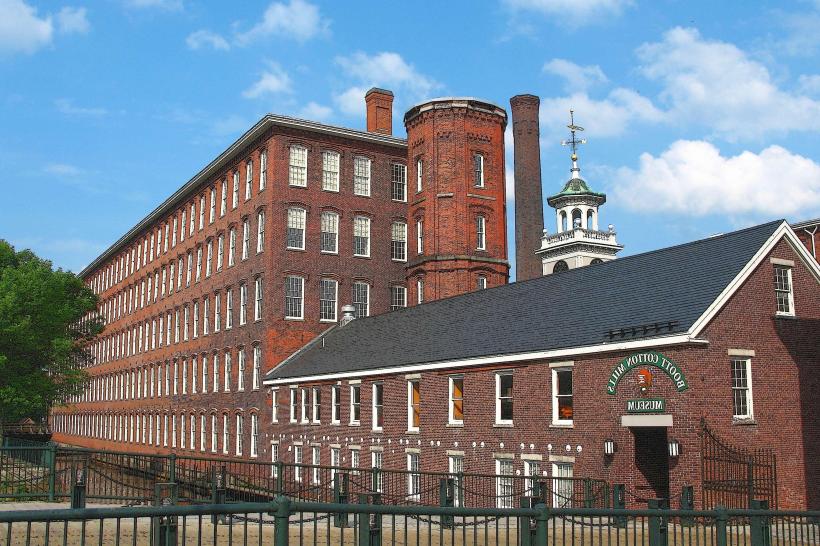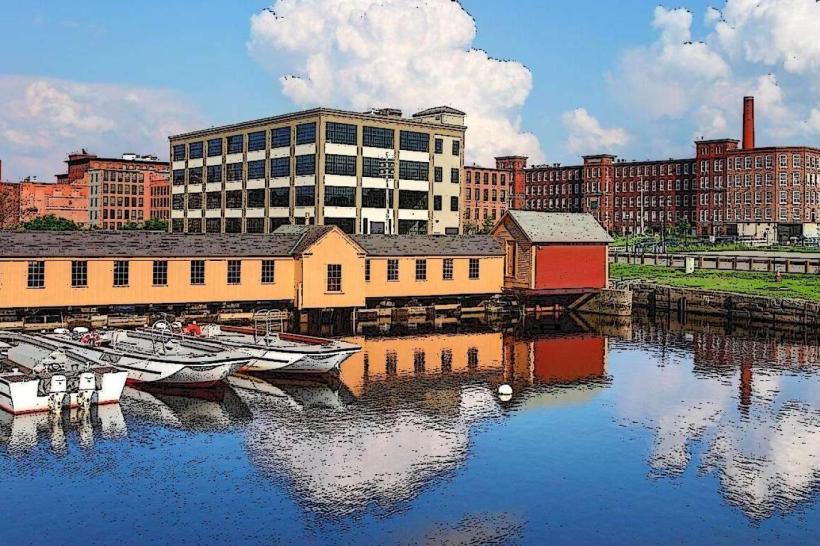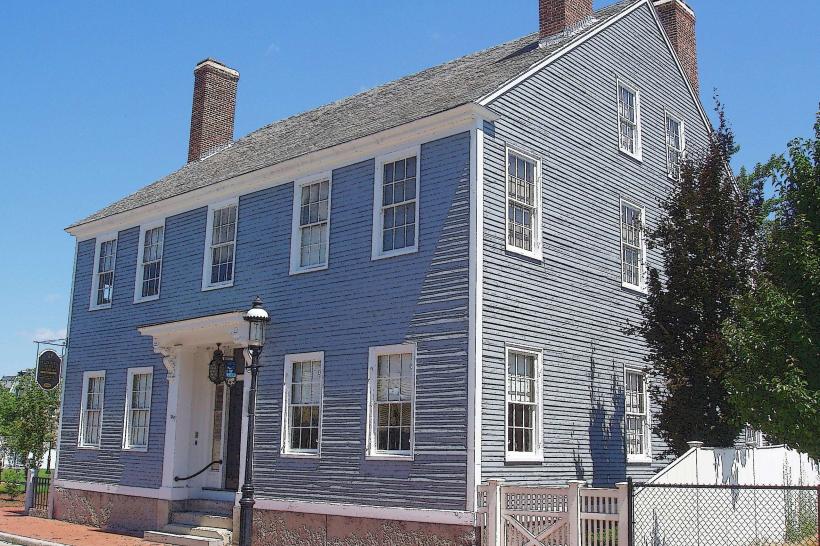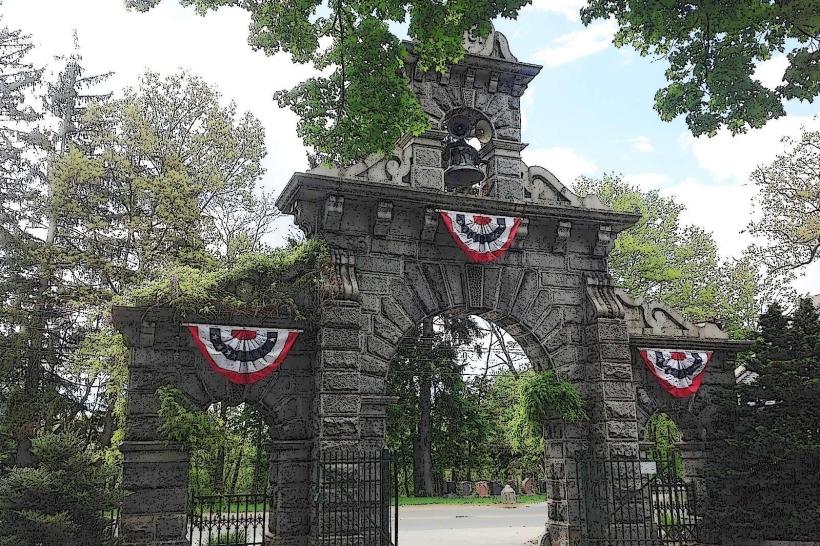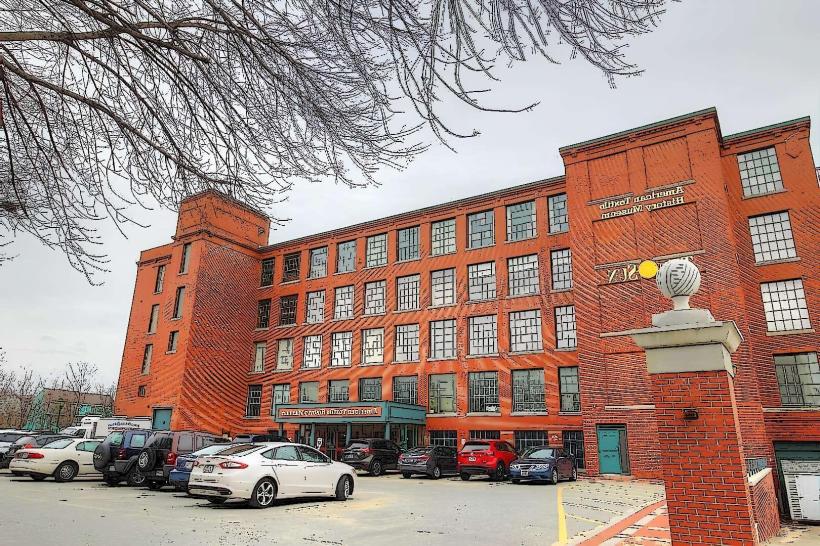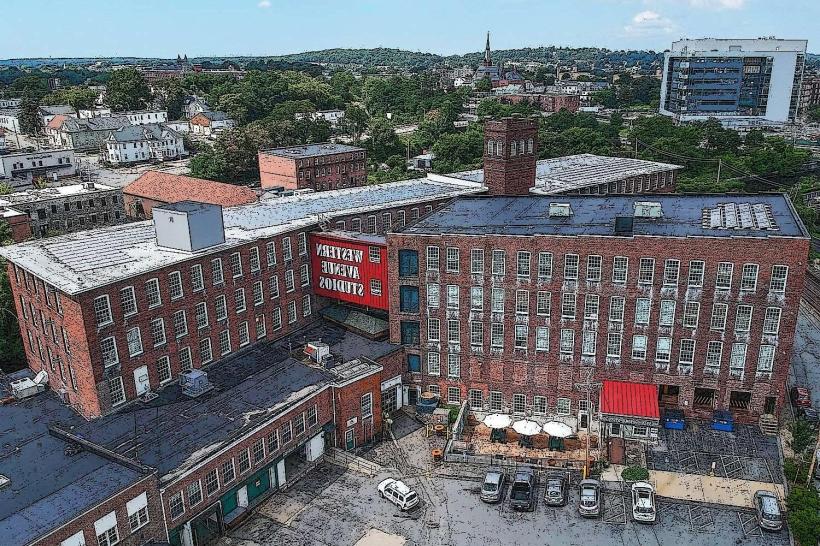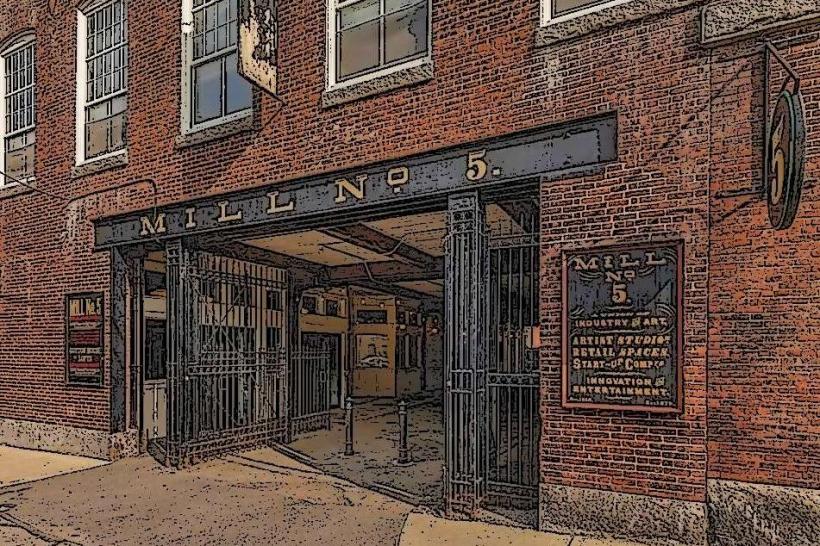Information
Landmark: Lucy Larcom ParkCity: Lowell
Country: USA Massachusetts
Continent: North America
Lucy Larcom Park, Lowell, USA Massachusetts, North America
Lucy Larcom Park, nestled along the Merrimack Canal in downtown Lowell, Massachusetts, is a small but deeply symbolic public space that serves as both a historic tribute and a lively urban gathering area. The park’s identity is rooted in the industrial heritage of Lowell and pays homage to one of its most iconic literary and labor voices-Lucy Larcom.
Historical Origins
The land that would become Lucy Larcom Park was designated for public enjoyment as early as 1824, during the formative years of Lowell’s development as a planned industrial city. The area was reserved by the Proprietors of Locks and Canals with a very deliberate purpose: to serve as a space for ornamental beautification and urban ventilation in the midst of rapidly rising mill structures. This space was meant to remain undeveloped, planted with trees, grass, and shrubs for the well-being of the workers and residents living and working nearby.
In 1909, the space was officially named after Lucy Larcom, a former mill girl who became a celebrated poet, teacher, and memoirist. Born in 1824, Lucy worked in Lowell’s textile mills from the age of 11 and later became involved in the cultural life of the mill community. She wrote for The Lowell Offering, a publication written by and for female mill workers, and later published A New England Girlhood, a memoir that vividly captures life in the mills and the struggles and aspirations of working women during the 19th century.
Park Layout and Landscape Features
Though small in size-about half an acre-Lucy Larcom Park is thoughtfully designed. It follows the edge of the Merrimack Canal and features a linear layout that includes the following key elements:
Tree-lined Walkways: Brick-paved paths shaded by mature trees allow for peaceful strolls or quiet reflection in the midst of downtown Lowell. These walkways trace the historic canal, visually tying the past to the present.
Terraced Greenspace: The gentle slope toward the canal and tiered seating areas make the park an inviting place for outdoor gatherings and impromptu performances or picnics.
Stone Benches and Lighting: Thoughtfully placed seating and contemporary lighting installations make the park accessible and welcoming both day and night. The lighting is notably enhanced in the evenings when the Merrimack Canal’s LED lighting system comes alive with seasonally programmed color displays that sometimes synchronize with ambient music during festivals or special events.
Public Art: "Industry, Not Servitude"
A central feature of the park is an evocative public art installation titled “Industry, Not Servitude,” created by artist Ellen Rothenberg. This sculpture pays tribute to the women laborers of Lowell’s mills, including Lucy Larcom herself and members of the Lowell Female Labor Reform Association, one of the first women-led labor advocacy groups in the United States.
The artwork consists of five large sculptural elements arranged across the landscape of the park. These abstract forms are etched with quotes from Larcom and other mill girls, offering a visual and textual dialogue with the site’s industrial past. The title itself is a direct challenge to the notion of factory work as oppression, instead reframing the labor of mill girls as a path to self-determination and social evolution.
Community and Educational Role
Lucy Larcom Park is more than a commemorative site-it plays an active role in the social and cultural life of Lowell. It borders Lowell High School, and as such, it is used frequently by students as a place to relax, study, or socialize between classes. The park's proximity to educational institutions also makes it a natural extension of public history efforts by the Lowell National Historical Park, whose rangers often include the space in walking tours.
Additionally, the park is a venue for community programming and public events, particularly during the city’s seasonal festivals:
Lowell Folk Festival: Held every July, this major cultural celebration includes stages set up adjacent to Lucy Larcom Park, where music performances and food vendors attract large crowds.
Winterfest: During winter months, the park is decorated and used for festive activities such as ice sculpting and family-oriented entertainment.
Public Ceremonies and Arts Events: The park is occasionally used for civic gatherings, poetry readings, student performances, and local arts showcases.
Urban Context and Accessibility
Located on Merrimack Street, Lucy Larcom Park is within walking distance of key Lowell destinations such as:
The Merrimack Repertory Theatre
The Lowell National Historical Park Visitor Center
The Tsongas Industrial History Center
The Pollard Memorial Library
Its centrality makes it easily accessible to tourists exploring the historic downtown, and to residents looking for a green retreat within the urban landscape. The canal-side location also provides a picturesque view that adds to the city’s waterfront character.
Symbolism and Legacy
Lucy Larcom Park stands not only as a memorial to one individual but as a broader tribute to the working-class women whose voices and experiences helped define Lowell’s identity. Through its carefully curated art, landscape, and historical context, the park keeps alive the memory of women who used their intellect and labor to shape early American industry and culture.
Lucy Larcom herself symbolizes the intersection of labor, literature, and activism. By commemorating her in a public park that is freely accessible to all, the city reinforces a vision of history that includes women's contributions not just as workers, but as thinkers, writers, and change-makers.
Summary
Lucy Larcom Park is a historically meaningful and beautifully designed public space in Lowell, Massachusetts. It honors the legacy of mill poet and activist Lucy Larcom while providing a green oasis in the heart of a historically industrial city. With its artistic tributes, cultural programming, scenic canal-side setting, and community-centered design, the park continues to be a vital thread in Lowell’s historical and civic fabric.

